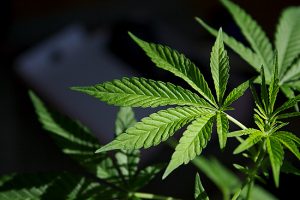It might be easier these days to count the number of U.S. states that haven’t legalized marijuana for medical or recreational use than the number that have. Nevertheless, the plant is still considered by the federal government to be a dangerous controlled substance, like cocaine or heroin.
On the federal level, possessing, buying, or selling marijuana remains illegal. Although the government has mainly abstained from enforcing the law, the industry and states are facing numerous obstacles.
At the banking level, for example, some organizations are unwilling to grant loans or accounts to marijuana-related businesses for fear of prosecution. Others add significant markups for their financial services. If the SAFE Banking act had not been removed from the defense bill last December, it would have opened the door for the cannabis industry to access such banking services.
When federal law is not creating a hurdle, it is the states themselves. In Virginia, possession of cannabis has been legalized, but legal retail sale has been delayed until 2024.
In any case, with 18 states now allowing recreational cannabis consumption and 18 more allowing medical cannabis use, the industry is poised to expand rapidly within the next few years.






















